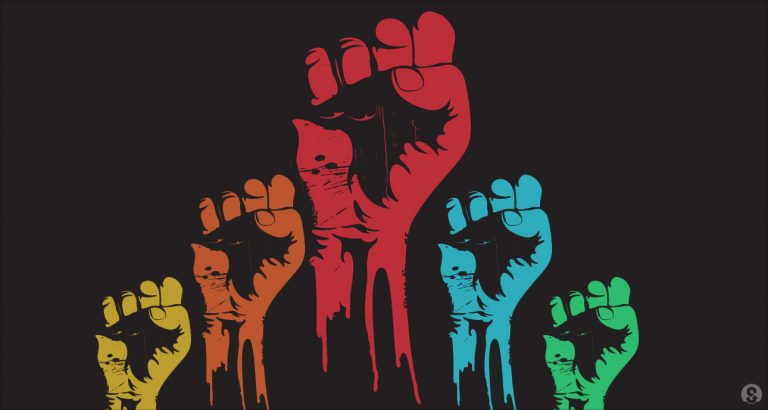
(as plagiarized from Robert Kennedy)
Programming lighting for a big show takes time. It requires several days of long hours being chained to a console smashing buttons, flipping faders and twisting knobs. There are endless tweaks and teases that will haunt our creative conscious right up until doors. If given three days and twelve hours to program a show, we will take three days and thirteen hours whenever possible.
We are the data entry machines that make light come to life. Sometimes, we get treated like machines. We are not machines. We are humans and we need to be respected as such.
We are the lighting programmers of the world and we have rights. We have families, we have stomachs and we are fallible. We are the corporate artists who have been paid to do a job to the best of our ability. We will give our clients every ounce of sweat and tears that we can squeeze. We can allow our souls to be drained into the show but we must not drain our dignity.
These proclamations are presented as the “Declaration of Programmers Rights”. We hold these truths to be self-evident: that all programmers are created equal; that they are endowed by a creator with certain unalienable rights; that among these are liberty, play, and the pursuit of exquisiteness. Every programmer is entitled to certain fundamental rights, simply by the fact of being hired as a programmer.
(1) We all have the right to self-expression within the confines of our agreements.
As programmers we have been hired to enter the vision of the designer in to the console. We have a responsibility to create the most stunning vision possible. We have the right to present several options to the designer. We have the right to explore the attributes of the fixture. We have the right to show the designer how we would interpret the look and demonstrate how the features could be implemented for the greater good.
We have the right to take a few moments to show that a transition could look even better with a color fade with individual timing from center out while the zoom is delayed by a second so that the color changes and the zoom follows right behind.
Programmers shall enjoy freedom from inhuman or degrading treatment for taking a few extra seconds to work out the perfect strobe rate to match the BPM of the song.
We also reserve the right to save a beautiful look into a separate cue stack that can be used for later. (Even if our clients did not love it the first time).
Exploring potentiality of light is what makes a good show great.
(1) We all have the right to rest from work and to relax in appropriate intervals.
We all have the right to stand up and walk away from the console to uncross our eyes, readjust our spines and smoke’em if we got’em. We have the right to go back to the hotel/car/lounge/empty case to sleep for X amount of hours before we embark on another twenty-hour data-arranging session. We have the right to visit the washroom while the designer answers e-mails in great detail about their next project.
Stepping away from the console is what allows our brains to catch up to our fingers. Clarity of mind does not happen while staring at tracking sheets to see that cue fourteen has raw data in the control channel even though we have never touched the control dial.
Clarity of mind and vision happens when we step back, take in the big picture and soak up the grandiosity of what we have already created.

(1) We all have the right to express our opinions during the programming session.
We all have the right to speak our minds and put forth an opinion about the looks. This, in no way, means that our opinions need to be respected or heard. We all understand that the vision is unique to the designer and that our opinion is not always warranted. However, we are free from being shamed, mistreated or tortured for voicing our opinions.
(2) We all have the right to remain vocal during the programming session.
We have the right to dictate our key presses when we get into a jam. We have the right to explain to the designer what we are doing and that we may need a few extra key strokes to complete the bilateral panning cross fade that comes in from upstage and sweeps to down stage left. We have the right to explain that if we use the color wheel to get that very unique red, we cannot also apply a ten second crossfade to UV without snapping the color wheel. Taking the time to explain that we need to palletize our looks is in everyone’s best interest.
(1) We all have the right to one or more phone calls when necessary.
Taking a phone call during working hours is generally frowned upon in many industries, including our own. However, we have the right to take a phone call whenever necessary.
We have families that don’t understand why we sit at a computer screen for hours on end to get the perfect shutter cuts on a corporate logo.
We have other clients that want to know our availability in the next five minutes for a gig three months from now. We have technicians calling from the back of the stadium confirming addresses for fixtures on trusses that were added just moments ago without our knowledge. We have loose acquaintances that saw we checked in on Facebook at their local airport and want to know why we didn’t call them to say we are in town. Okay, okay, that last one is not worthy of a phone call but you know what I mean.
Placing a well-timed text to our programming mentors can save us hours of searching for a solution that has already been solved by the brain trust. Taking a moment to phone-a-friend while sorting out a way to offset the Art-net stream in a macro should never be used against us in a court of law.
(1) We all have the right to make an error if it is made in good faith.
To err is human. We are human. We will make mistakes. We may delete a preset and have to rebuild it. We may forget to block a preset when we meant to track it through the stack. We need to move forward, fix what we can and accept what we can’t.
Disclaimer: Do not abuse these rights. Just because we have these rights does not give any one of us permission to abuse them.
Unconscious Bias: Have You Addressed Yours?
5 Life Lessons I’ve Learned From The Business Of Storytelling


Guest Posts are written by featured authors who are not frequent contributors to TheatreArtLife. Details of the contributor can be found within each article unless the author wishes to remain anonymous. If you would like to submit a guest article to TheatreArtLife, please visit TheatreArtLife.com/Contribute or select CONTRIBUTE in the menu.
Read Full Profile© 2021 TheatreArtLife. All rights reserved.

Thank you so much for reading, but you have now reached your free article limit for this month.
Our contributors are currently writing more articles for you to enjoy.
To keep reading, all you have to do is become a subscriber and then you can read unlimited articles anytime.
Your investment will help us continue to ignite connections across the globe in live entertainment and build this community for industry professionals.